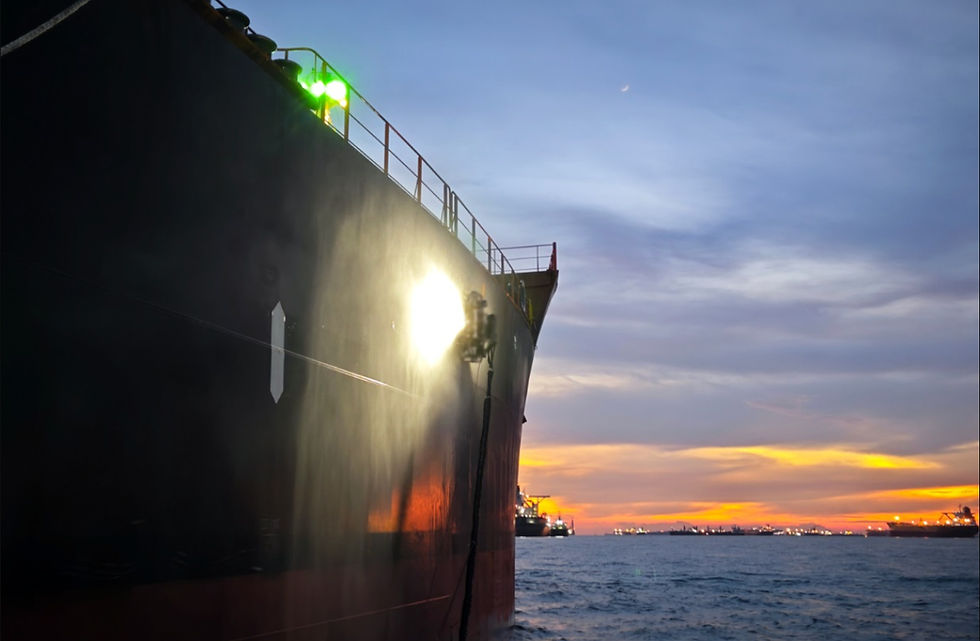Japanese and Singaporean players team up to accelerate fleet-wide decarbonization
- Balitang Marino

- Oct 1, 2025
- 2 min read

October 1 ------ Japanese shipping colossal Nippon Yusen Kabushiki Kaisha (NYK Line) and Singapore-based Neptune Robotics, which specializes in vessel cleaning services, have penned a memorandum of understanding (MoU) to accelerate fuel efficiency and decarbonization across NYK’s fleet.
As disclosed, the collaboration builds on a long-term partnership between the two companies, which was initially kick-started in 2022 when NYK became one of the earliest adopters of Neptune’s robotics-driven hull cleaning. According to NYK, the Singaporean company’s AI-powered underwater robots are believed to deliver up to ten times fuel savings compared to cleaning costs, with ‘considerable’ reductions in fuel use and greenhouse gas (GHG) emissions.
The expanded cooperation will reportedly now seek to scale robotic cleaning across NYK’s globally sailing fleet, comprising bulkers, car carriers and other carriers. This is anticipated to accomplish “greater” fuel savings as well as carbon reductions each year, starting from the second deployment phase. As part of the effort between Neptune Robotics and NYK, it is understood that the former has raised $52 million in a Series B funding round led by Granite Asia and with backing from the Japanese maritime transport player. The financing is hoped to help the Singapore-based company scale the deployment of its solution(s) on a wider scale.
To be specific, according to officials from Neptune, the funding is expected to fuel research and development (R&D) initiatives, new robotic systems, service platforms enabled by artificial intelligence (AI), and, ultimately, branching out into at least twenty markets around the world, of which Japan is envisioned to act as a potential ‘key’ hub.
As disclosed, a partnership like this comes at a time when the economic and environmental stakes are huge since biofouling—one of the burning issues in need of tackling on the voyage to net zero—can increase fuel usage by up to 30%, which is estimated to cost the maritime transport industry around $40-50 billion per year, in addition to driving excess emissions.
Source: offshore-energy.biz





Comments